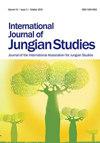Reading Milton through a Feminist Jungian Lens
Q4 Psychology
引用次数: 0
Abstract
My article re-reads John Milton’s Paradise Lost through a feminist post-Jungian perspective; the study will observe the implications of contemporary Jungian critical approaches toward Milton’s portrayal of Eve, who helps Adam find ‘a paradise within …, happier far’ (PL 12. 587). I will first highlight the negative portrayal of an evil, intellectually inferior Eve in Paradise Lost, and ultimately re-reading the poem—and the role of Eve in it—from the perspective of a feminist Jung. The initial reading of Paradise Lost, in which Eve was regarded as inferior and complementary to Adam, reflects Jung’s criticized notion that the anima’s role is to complement a man’s psychology. This, however, can be read differently through a post-Jungian feminist perspective. From this new viewpoint, Eve can be regarded as Adam’s equal, rather than an inferior company, and a catalyst in their ‘coniunctio’, in which they both individuate (rather than Eve, the anima be subservient to Adam’s individuation) in Paradise Lost. Despite the vast differences between John Milton’s and Carl Jung’s cultural and historical backgrounds, this novel reading of Paradise Lost in context of revisions to Jung’s anima theory and theory of individuation offers a more positive view on the poet’s depiction of Eve in keeping with more recent developments in Milton scholarship, which have drawn attention to the way the text questions conventions of gender hierarchy and patriarchy.从女性主义荣格视角解读弥尔顿
我的文章通过女权主义后荣格主义的视角重读了约翰·米尔顿的《失乐园》;这项研究将观察到当代荣格主义批判方法对弥尔顿描绘的夏娃的影响,夏娃帮助亚当找到了“内在的天堂……更幸福的远方”(PL12。587)。我将首先强调《失乐园》中对邪恶、智力低下的夏娃的负面刻画,并最终从女权主义者荣格的角度重读这首诗——以及夏娃在诗中的角色。在《失乐园》的最初阅读中,夏娃被认为是亚当的次等和补充,反映了荣格被批评的观点,即动物的角色是补充一个人的心理。然而,从后荣格主义女权主义的角度来看,这一点可以有不同的解读。从这个新的观点来看,夏娃可以被视为亚当的平等伙伴,而不是一个低劣的伙伴,也是他们在《失乐园》中都是个体化的(而不是夏娃,动物服从于亚当的个体化)的“conunctio”的催化剂。尽管约翰·米尔顿和卡尔·荣格的文化和历史背景有着巨大的差异,但这本小说在对荣格的动物理论和个性化理论进行修订的背景下阅读《失乐园》,为诗人对夏娃的描绘提供了一个更积极的视角,以跟上米尔顿学术的最新发展,这引起了人们对文本质疑性别等级制度和父权制的方式的关注。
本文章由计算机程序翻译,如有差异,请以英文原文为准。
求助全文
约1分钟内获得全文
求助全文
来源期刊

International Journal of Jungian Studies
Psychology-Applied Psychology
CiteScore
1.10
自引率
0.00%
发文量
10
 求助内容:
求助内容: 应助结果提醒方式:
应助结果提醒方式:


